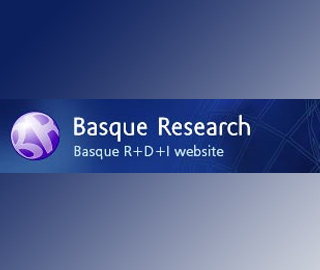Nov 14, 2011
The Cidetec-IK4 technological centre, based at the Donostia-San Sebastián Technological Park, is leading a European project for developing new plastics from organic waste such as the banana plant, almond nut shells or crustaceans, amongst others. These new plastics, aimed at cleaner and more sustainable alternative to petroleum oil-derived ones, will have advanced properties using nanotechnology-based methods.
The European project, known as ECLIPSE, is to last 3 years (2012-2014) and involves the participation by important bodies, universities, companies, etc., from countries such as Germany, Belgium and Spain, and by other Latin American bodies from Chile and Colombia.
The immense majority of plastic materials currently on the market are derived from non-environmentally friendly petroleum oil. The anticipated end of crude oil supplies in the near future – defended by arguments such as the Hubbert Peak theory –, together with the increase in the price of petroleum, has in recent years triggered a race to find alternative formulae for substituting this fossil fuel as an energy source and raw material from which products such as plastics are derived.
Plastics manufactured from polylactic acid (PLA) from organic material such as maize or sugar beet are an alternative which is increasingly gaining weight. Nevertheless, the use of these raw materials is viewed with certain misgivings, given that a recent report by the European Union (Report COM 2010, on indirect land-use change related to biofuels and bioliquids) shows that more and more agricultural land is being earmarked to growing vegetables for the production of biofuels and bioplastics.
This phenomenon increases the price of basic food products, such as maize and wheat, and puts pressure to allocate evermore land to agriculture to this end, with devastating consequences for consumers and small producers in developing countries.
To read more click here...
The Cidetec-IK4 technological centre, based at the Donostia-San Sebastián Technological Park, is leading a European project for developing new plastics from organic waste such as the banana plant, almond nut shells or crustaceans, amongst others. These new plastics, aimed at cleaner and more sustainable alternative to petroleum oil-derived ones, will have advanced properties using nanotechnology-based methods.
The European project, known as ECLIPSE, is to last 3 years (2012-2014) and involves the participation by important bodies, universities, companies, etc., from countries such as Germany, Belgium and Spain, and by other Latin American bodies from Chile and Colombia.
The immense majority of plastic materials currently on the market are derived from non-environmentally friendly petroleum oil. The anticipated end of crude oil supplies in the near future – defended by arguments such as the Hubbert Peak theory –, together with the increase in the price of petroleum, has in recent years triggered a race to find alternative formulae for substituting this fossil fuel as an energy source and raw material from which products such as plastics are derived.
Plastics manufactured from polylactic acid (PLA) from organic material such as maize or sugar beet are an alternative which is increasingly gaining weight. Nevertheless, the use of these raw materials is viewed with certain misgivings, given that a recent report by the European Union (Report COM 2010, on indirect land-use change related to biofuels and bioliquids) shows that more and more agricultural land is being earmarked to growing vegetables for the production of biofuels and bioplastics.
This phenomenon increases the price of basic food products, such as maize and wheat, and puts pressure to allocate evermore land to agriculture to this end, with devastating consequences for consumers and small producers in developing countries.

0 comments:
Post a Comment